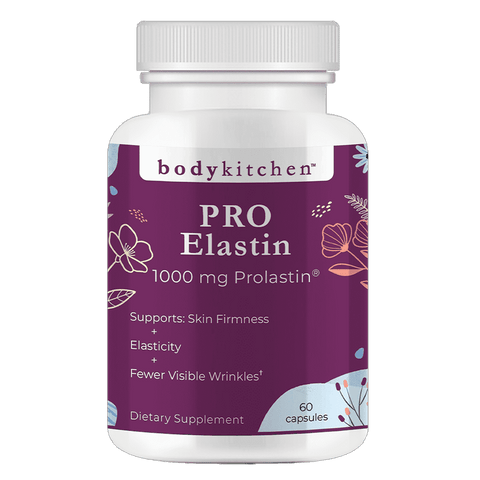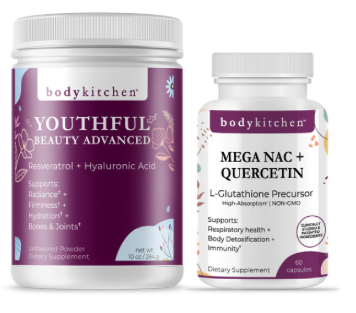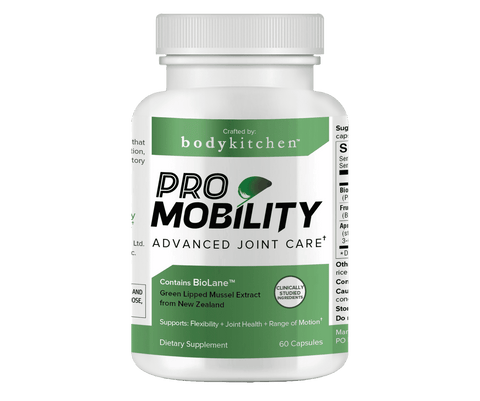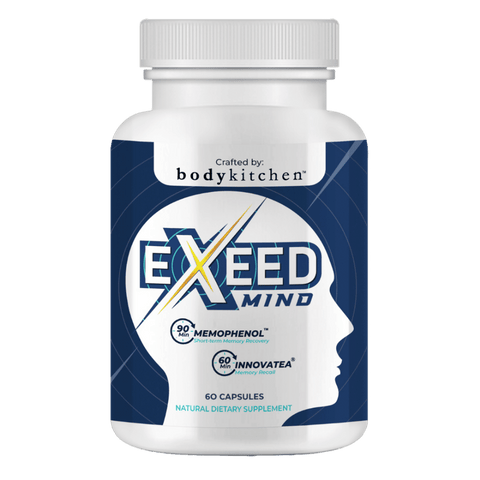How to Support the Immune System with Food, Supplements & Sleep
Your immune system is the network of cells, tissues, and organs that work together to defend your body against microbes that cause illness and drive the healing process when you are injured or sick. Because so many different parts of the body are involved in immune function, you can think of the system as a complex machine. Aspects of your diet and lifestyle can cause the components of this machine to stop working correctly, leading to poor immune system function.
Conversely, you can support immunity through nutrition, sleep, and supplementation. Read on to discover exactly how to boost your immune system and to get answers to common questions like, "How does the lack of sleep affect the immune system?"
Immune System Nutrition
Many studies have confirmed the link between nutrition and immune system function. How does nutrition affect the immune system? The foods you eat contain nutrients that help fuel the reactions and activities vital to proper immunity. You can make your diet more conducive to immune support by:
Eating more immune-boosting foods. Certain foods contain vital nutrients that are beneficial for your immune system. Research suggests that immune system booster foods include nuts, seeds, legumes, fruits, and vegetables.
Switching to healthy fats. Many individuals mistakenly believe that fats are the enemy of a healthy diet, but that's not true. Your body requires fat to work correctly. The key is to select fats that are also foods that boost your immune system. Dietitians frequently recommend olive oil because it is heart-healthy and may act as an anti-inflammatory.
Reducing your sugar intake. Excess sugar can wreak havoc on your health, increasing your risk of obesity and diabetes. There is also evidence to suggest that diets high in sugar may interfere with the absorption of foods that support immune system function and even disrupt some of the processes required to maintain proper immunity.
Sleep and Immune System Support
If you're not getting enough rest, your immune system might not be functioning at its best. Studies into how sleep affects your immune system have revealed that much of the healing process occurs while you rest. Not getting at least seven hours of sleep can rob your body of the time that it needs to recover. In addition, scientific inquiry seeking to answer the question, "How does sleep strengthen the immune system?" has revealed that sleeping the necessary amount of time when you're sick may help to shorten recovery time.
Immune System Support Supplements
Many individuals struggle to get enough of the required vitamins needed to properly function the immune system from diet alone. A busy lifestyle can make it challenging to prepare three healthy meals a day, and the quickest foods to consume are often full of empty calories. A supplement or vitamin for immune system support can help you bridge the diet gap and get the nutrients you may be lacking. Often, these types of products are called immune system booster supplements.
Some of the most common key ingredients in immune system support supplements include:
Vitamin C. This essential vitamin found in fruits, especially citrus, and vegetables acts as an antioxidant, meaning that it helps break down harmful particles called free radicals that can damage cells throughout the body. Vitamin C benefits the immune system further by assisting in collagen production, which is needed to repair the skin after a wound.
Elderberry. One study into the benefits of elderberry found that individuals who took a supplement containing this natural fruit extract suffered less severe symptoms during respiratory infections. Scientists believe that a compound in the berry called anthocyanin is responsible for its ability to provide immune system support. Anthocyanin is an antioxidant that fights free radicals and may also help to reduce inflammation.
NAC. N-acetylcysteine is a form of the amino acid cysteine. Your body requires this amino acid to produce glutathione, an essential antioxidant. Studies have found that NAC benefits assist the immune system when you are recovering from an illness. Large doses of NAC supplement products have been shown to help remove congestion from the lungs. This has led many individuals to take NAC to address symptoms of asthma and other respiratory conditions.
Quercetin. A natural plant pigment, quercetin benefits the body by acting as an antioxidant. Scientific studies indicate that it may also decrease inflammation and help control allergy symptoms caused by immune system dysfunction.
Finding the Best Multivitamin for Immune System Support
There are thousands of supplements that claim to provide immune system support, so shopping for one can feel overwhelming. Important tips to remember include:
Paying attention to the concentration of ingredients. It's not enough for a supplement to contain trace amounts of immune system-supporting foods or nutrients like elderberry or quercetin. Compare levels of the key ingredients found in various products.
Choosing supplements with natural ingredients. For elderberry supplements and other immune booster supplements derived from food, look for GMO-free products and made from whole foods. Generally, the body has an easier time absorbing and utilizing nutrients that are naturally derived.
Being on the lookout for absorption-boosting complexes. The best supplements often contain additional complexes that help your body make use of key immune-boosting ingredients. For example, black pepper is sometimes added to products to enhance absorption.
Talking to your doctor. It is essential that before taking any new supplement, you should consult your medical provider. This will help to ensure that you choose a supplement that can meet your unique needs and that is unlikely to interact with any medications or other supplements that you may be taking.
















